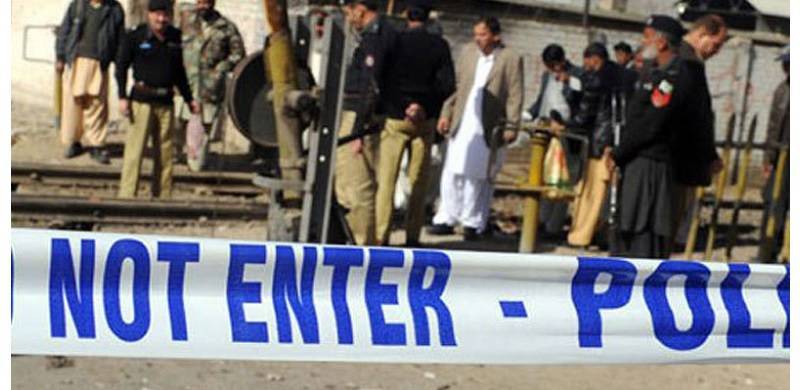
On July 11, the Quetta police fired upon peaceful Baloch protesters who were marching towards the 'Red Zone' in Quetta as part of a rally to protest against the abduction of Zaheer Ahmed from the provincial capital on June 27, 2024. The incident left at least nine protesters injured – all of them youngsters- including a girl. The incident, however, barely even kicked up any dust in the mainstream media.
In addition to the injured, the police arrested several protesters, including over 30 girls. It took three days for the families of the protesters to thrash out terms with the Quetta Commissioner. A four-point agreement was signed between them before the arrested protesters were released on July 14. While the agreement managed to secure the release of arrested protesters, it made no mention of the law enforcers who had allegedly fired on the protesters. Neither the protesters nor the state institutions raise the matter thenceforth.
A similar incident took place in Khuzdar on July 17 when personnel of the Frontier Corps (FC) detained Baloch women, including Saira Baloch (sister of abducted Asif Baloch and Rasheed Baloch) and Sadia Baloch (sister of abducted Salman Baloch). It prompted a large protest by locals in favour of the two women, and they protested late into the night, demanding that the women be freed. Once again, protesters were fired upon. The two women were released in the aftermath of that incident.
In the latest chapter of enforced disappearances in Balochistan, a new trend has emerged. The psyche of a segment of the population suggests that protesting by blocking major thoroughfares can be effective. This thought seems to have been inspired by the national protest landscape, but it took root because these protesters are not guided politically by a full-fledged Baloch political party. They are also not led to further their protest purely in the public interest. The families of missing persons and other protesters have expressed complete faith in the protests and demonstrated their commitment to the protests until their loved ones are released. However, they have been unable to direct this energy and convert the momentum from their short-term protests into national examples, which have a larger influence on the national psyche. Hence, while these protests are significant, they are also quite sensitive.
If things continue to move as they are, it would raise concerns about the longevity of the present state status quo. It is thus imperative to hold the relevant departments accountable for such unreasonable acts per established laws and norms of a democratic society
Lacking rigour and a central focus, the protests have failed to dent the national psyche. While they elicit momentary and fleeting sentiments of sympathy and concern, they ultimately cannot carry the momentum forward, ending in disappointment. Knowing this, when state institutions use violence against such peaceful protesters, there arise two dangerous assertions: one, the state uses force to strengthen the perception of fear among the masses. Two, the state uses it as a tool to combat other protests by deeming its actions a response to "violence from protesters".
The nine protesters who were injured when the police fired upon them in Quetta, the bullets struck their feet, legs, belly, and shoulders while grazing their faces and heads. This demonstrates that the Quetta police, shockingly, had a clear intention to inflict grievous bodily harm on unarmed protesters, even kill them without resorting to other established methods of crowd control. The police opted to fire upon the protesters instead of setting up roadblocks, firing tear gas, employing water canons or baton-charging them to force the protesters to disperse. By using excessive and even deadly force to establish the state's writ against those demanding their legal rights, the state demonstrated its intentions. Luckily, the protesters survived. Yet, the incident has failed to generate a national debate at the same level as a similar incident involving another peaceful protest where security forces fired upon protesters.
What is deafening is the silence of Baloch rights activists over such incidents. As far as they are concerned, the incident of extreme police excesses never happened. While they debate whether to endorse or negate the ongoing negotiations between the families of missing persons and state institutions, one will be hard-pressed to find anything they have offered on the firing incident.
Certain elements in state institutions have, on occasion, been involved in violating the rights of the Baloch. From direct to indirect violence, state institutions have inflicted many wounds on the Baloch nation. But after enforced disappearances, we now witness excesses in implementing the state's writ. If things continue to move as they are, it would raise concerns about the longevity of the present state status quo. It is thus imperative to hold the relevant departments accountable for such unreasonable acts per established laws and norms of a democratic society.
Already, some have started asking dangerous questions: If the Baloch can be punished without being formally charged with an offence as required under the state's laws, why can't the shoe find itself on the other foot?

